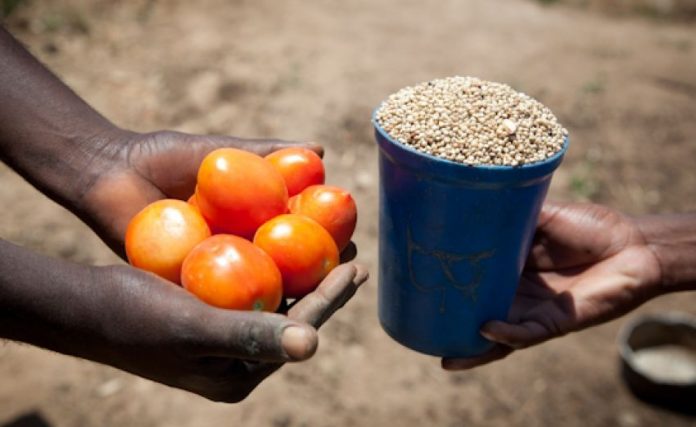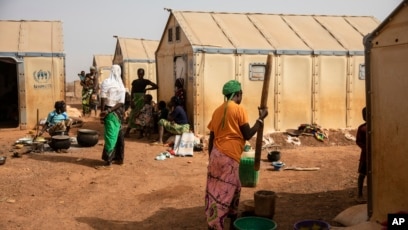Africa’s Sahel region is facing a perfect storm of disasters that are drastically diminishing the ability of people to feed themselves.
The World Food Program warns millions of people across the region are facing a worsening food crisis, with more than a million on the brink of starvation.
The WFP reports conflict in the region, the COVID-19 pandemic and climate change have plunged more than 10.5 million people into acute hunger.
WFP spokesman Tomson Phiri says this number includes 1.1 million people who are on the point of starvation, a nearly 10-fold increase over the past three years. He says the many calamities befalling the region plus the rising costs of food and other commodities are putting basic meals out of reach for millions.
“People have been chased from their homes by extremist groups, displacement has grown by almost 400%, people have been starved by drought, and they have been plunged into despair by COVID’s economic ripple effects,” Phiri said.
The WFP reports the recent spillover of the conflict from Burkina Faso into Benin risks further destabilizing the entire region and destroying development gains.
The agency has been providing food assistance to 9.3 million people in Burkina Faso, Chad, Mali, Mauritania, and Niger. Phiri warns this lifeline for millions is being threatened because of budgetary constraints.
“While the needs are sky high, resourcing to support the vulnerable is at rock bottom, forcing the World Food Program into a difficult position of having to take from those who are hungry to feed those who are just about to starve or already are starving,” he said.
READ ALSO: Iran FM, Mr Abdollahian meets UN chief, Slovenia President , KRG head
Phiri says this is happening in Niger right now. He says a funding shortfall in that country is forcing the WFP to cut food rations by half for 1.4 million people. He warns similar cuts may have to be made in other countries unless more money is forthcoming.
The WFP is appealing for $470 million to carry out its lifesaving
humanitarian operation for the next six months.














